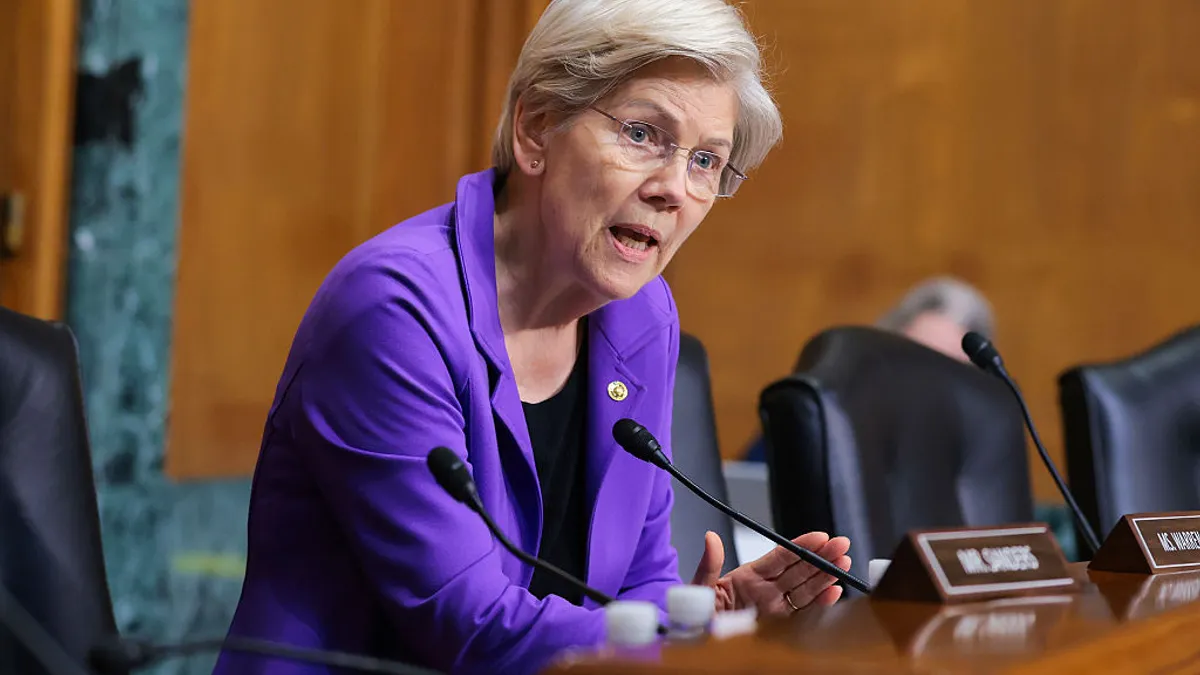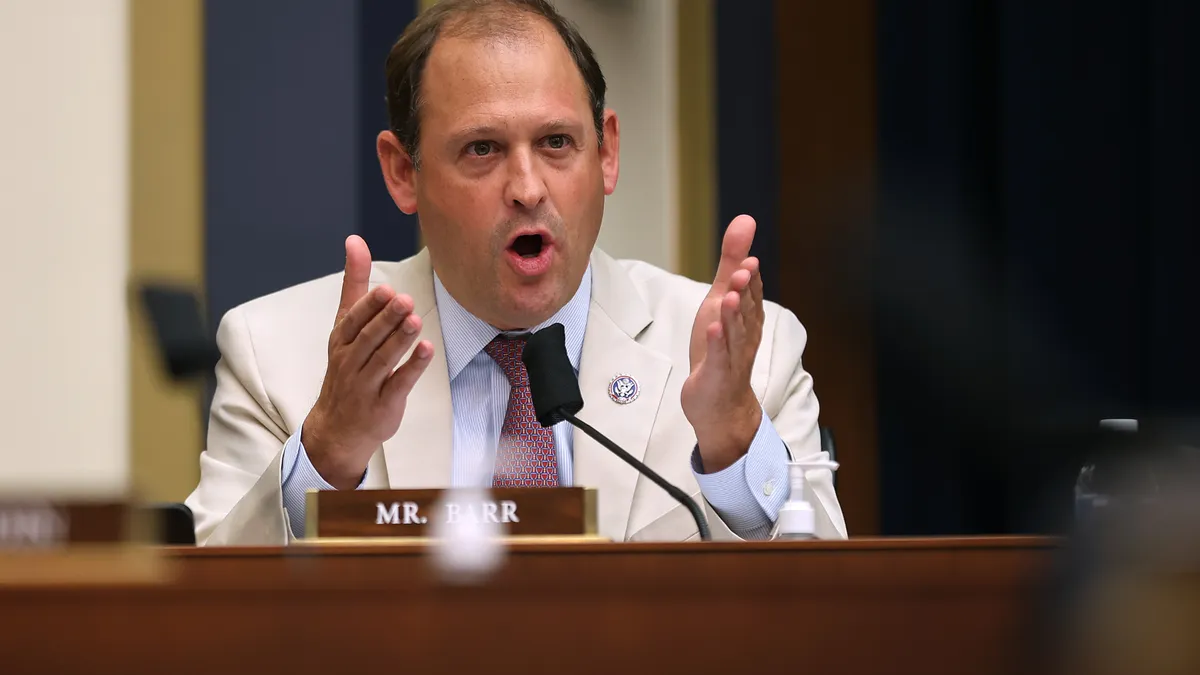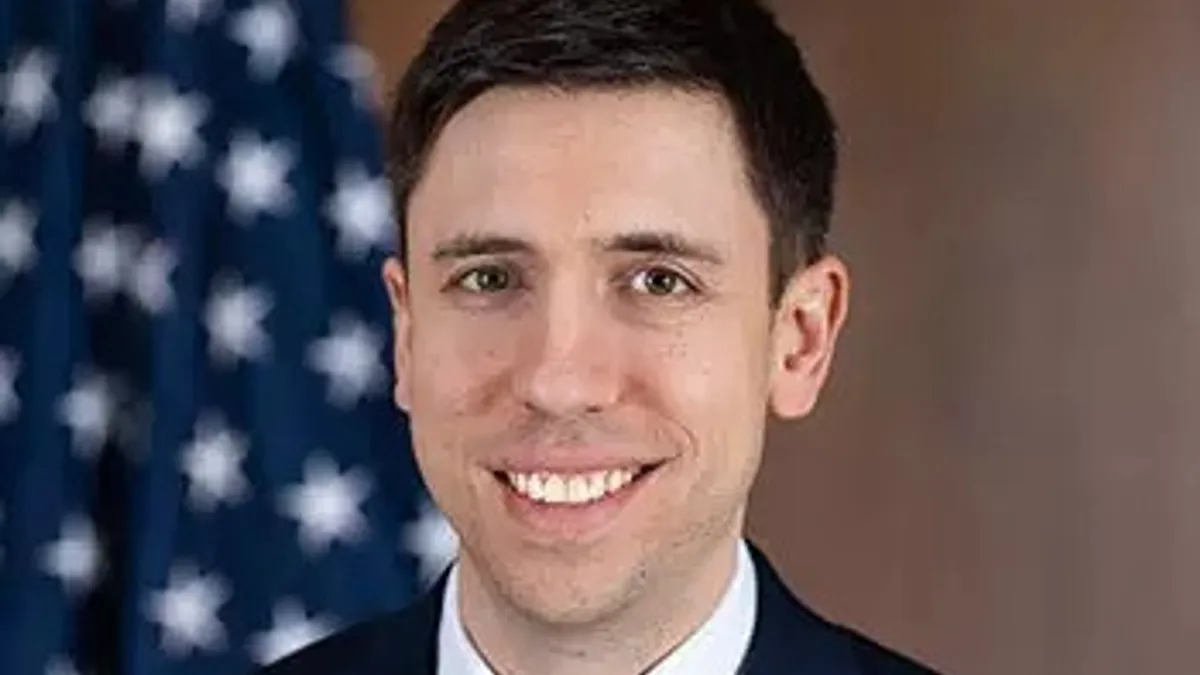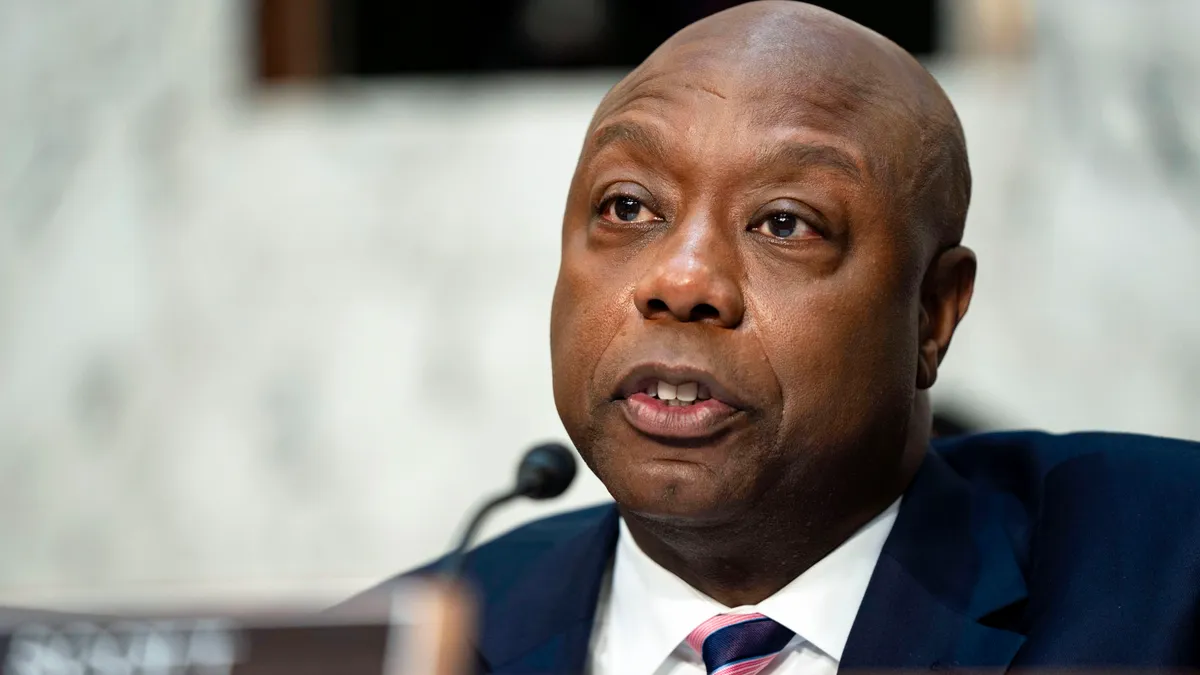The Federal Deposit Insurance Corp. doesn’t have the market cornered on telegraphing its priorities in the early days of the Trump administration. While the agency’s acting chair, Travis Hill, may have gotten a jump on laying out his 15 bullet points for the near future, another nascent Republican regulator – Federal Reserve Gov. Michelle Bowman – listed several of her concerns in a speech this week to the Kansas Bankers Association.
Bowman is considered a front-runner to serve as the Fed’s next vice chair for supervision. Michael Barr, who inhabits that role now, is resigning effective Feb. 28.
Here are five crucial takeaways from Bowman’s speech:
1. “Credit decisions should not be dictated by banking regulations or supervisory messages.”
Here, Bowman spotlights allegations, fanned by President Donald Trump last month at the World Economic Forum in Davos, Switzerland, that certain banks, in the opinions of some, are inadequately serving conservatives.
“We never close accounts for political reasons and don’t have a political litmus test,” a spokesperson for Bank of America – the intended target of Trump’s barb – said in response.
JPMorgan Chase CEO Jamie Dimon, appearing on a podcast last month, said his bank “[has] not de-banked anyone because of political or religious relationships, period,” but added “when we de-bank someone, they often blame that reason, but that’s not a reason.”
Bowman on Wednesday said regulators “must change approaches that have resulted in credit allocation decisions, research how banks are making decisions related to which customers they serve, and promote an environment that allows legitimate bank customers to obtain banking services.”
In other words, don’t let banks blame regulation for de-banking decisions.
“Bank regulatory policy … should not be used to limit or exclude access to banking services for legitimate customers and businesses in a way that is meant to further unrelated policy goals,” Bowman said. “Ultimately, bankers are and should be responsible for their own credit allocation decisions.”
2. “We must prioritize understanding the risks and benefits of new technologies before developing a supervisory posture, especially when … using the ‘soft’ power of supervision to discourage its use.”
Talk about crypto without saying crypto. The digital asset sphere is reportedly the source of several de-banking allegations. And Trump, over the past few months, has developed a generally pro-crypto stance. The Securities and Exchange Commission – which, during the Biden administration, stood as crypto’s fiercest skeptic – launched a task force last month devoted to developing a regulatory framework for the sector. It makes sense that the Fed, too, would prioritize how to regulate the space.
“The natural posture of a regulator may be to emphasize safety and soundness above all other objectives, but doing so will ultimately stifle innovation and threaten the long-term health and utility of the banking system,” Bowman said.
Bowman advocated for a framework that allows the private sector to innovate, while regulators maintain “transparency and open communication, including demonstrating a willingness to engage during the development process.”
“By providing clarity and consistency, we can encourage long-term business investment,” she said. “Absent clearer rules of the road, we run the risk of reducing the availability of banking services.”
Bowman blames a “more is better” approach she said some regulators have historically taken. She described an “onslaught of proposed and final regulations and guidance … that require a significant time commitment to review, to comment on, and to implement” and often require changes to risk-management practices.
Bowman’s aim here cuts close to Hill’s at the FDIC. Hill listed an “open-minded approach to innovation and technology adoption” as one of his 15 priorities – specifically relating to fintech partnerships with banks and to digital assets and tokenization.
3. “Examinations cannot be just a box-checking exercise.”
Another bullet point that hews closely to Hill’s priorities at the FDIC. Hill said he wants to “improve the supervisory process to focus more on core financial risks and less on process.” Bowman, by comparison, said the Fed should “rely on well-trained and experienced examiners empowered to exercise independent judgment and ask questions, which leads to stronger and more effective supervision.”
“There is always the risk of misidentification and mis-prioritization, and that we fail to take appropriately robust action on key issues or focus on issues that are less material to a bank's safety and soundness,” she said. “Our goal should be to develop a better filter to promote appropriate and effective prioritization.”
4. “The need for a joint and coordinated solution [on fraud] does not excuse collective inaction.”
Regulators’ efforts to fight fraud “have been frustratingly slow to advance,” Bowman said, “and seem to have done little to address the underlying root causes” of an increase in fraud.
Those frustrations can stem from the limits of tools available to fight fraud and “frictions dealing with counterparties” in the investigation stage, she said.
“The costs of prevention, detection and remediation can also be substantial, but so can the costs of navigating these issues dealing with affected bank customers,” Bowman said. “We are overdue for more assertive action to protect bank customers and the financial system.”
5. “Expansion of the regulatory framework is not a cost-free endeavor.”
To simplify it, banks have been counting on de-regulation under Trump. Bowman here appears to be advocating for smarter regulation.
“As regulatory and supervisory demands grow, there is often parallel growth in the staff and budgets of the banking agencies,” she said. “We should not only be cognizant of these costs, but we should act in a way that requires efficiency while ensuring safety and soundness.”
The cost of compliance, Bowman said, falls to banks and their customers.
“Some degree of elasticity in regulator capacity is necessary to respond to evolving economic and banking conditions, as well as emerging risks, but there must be reasonable constraints on banking agency growth,” Bowman said.























